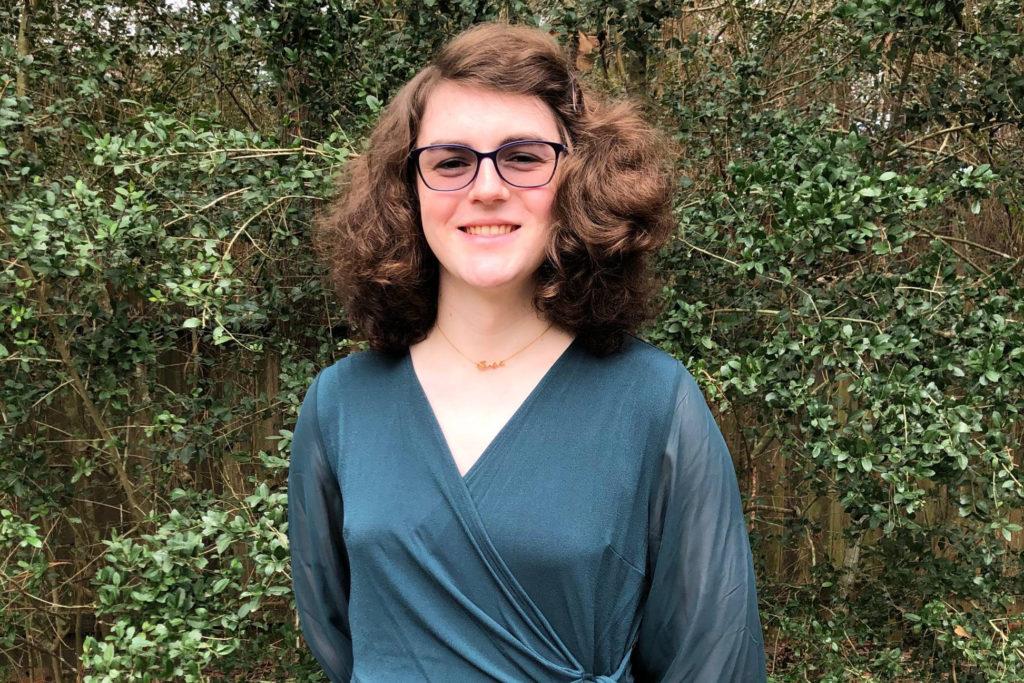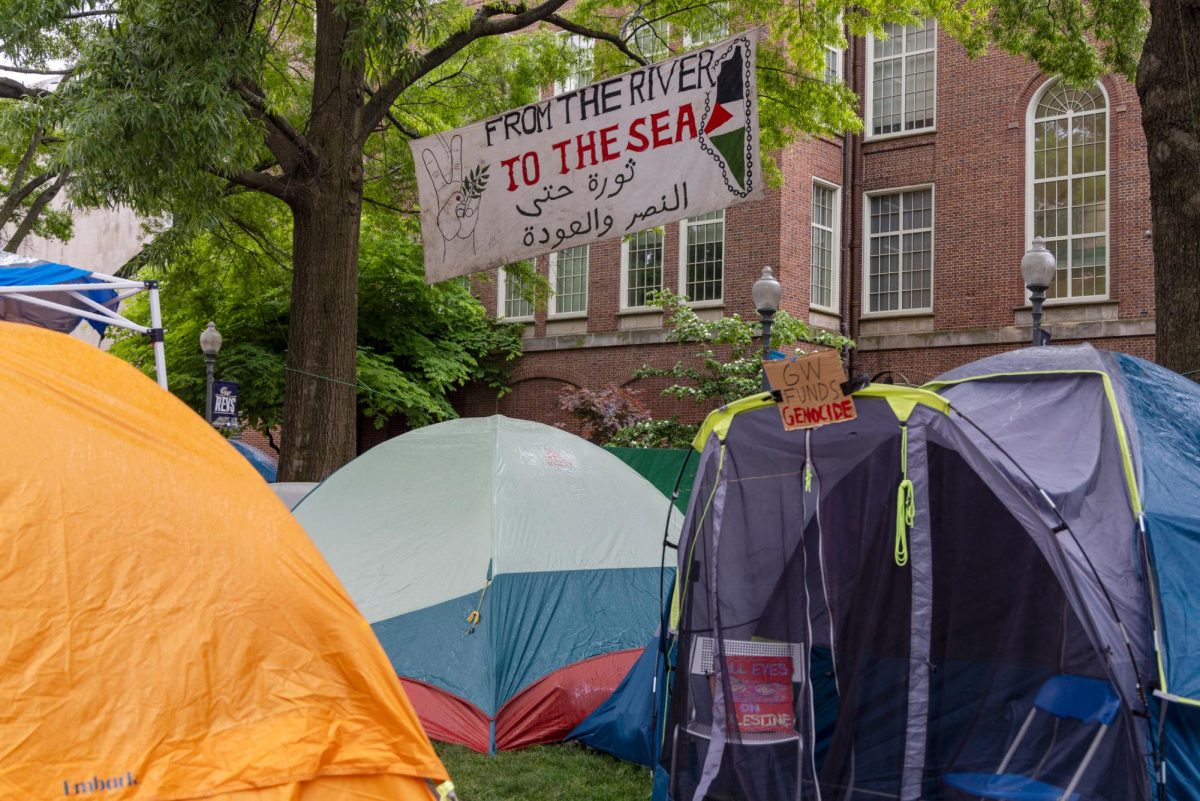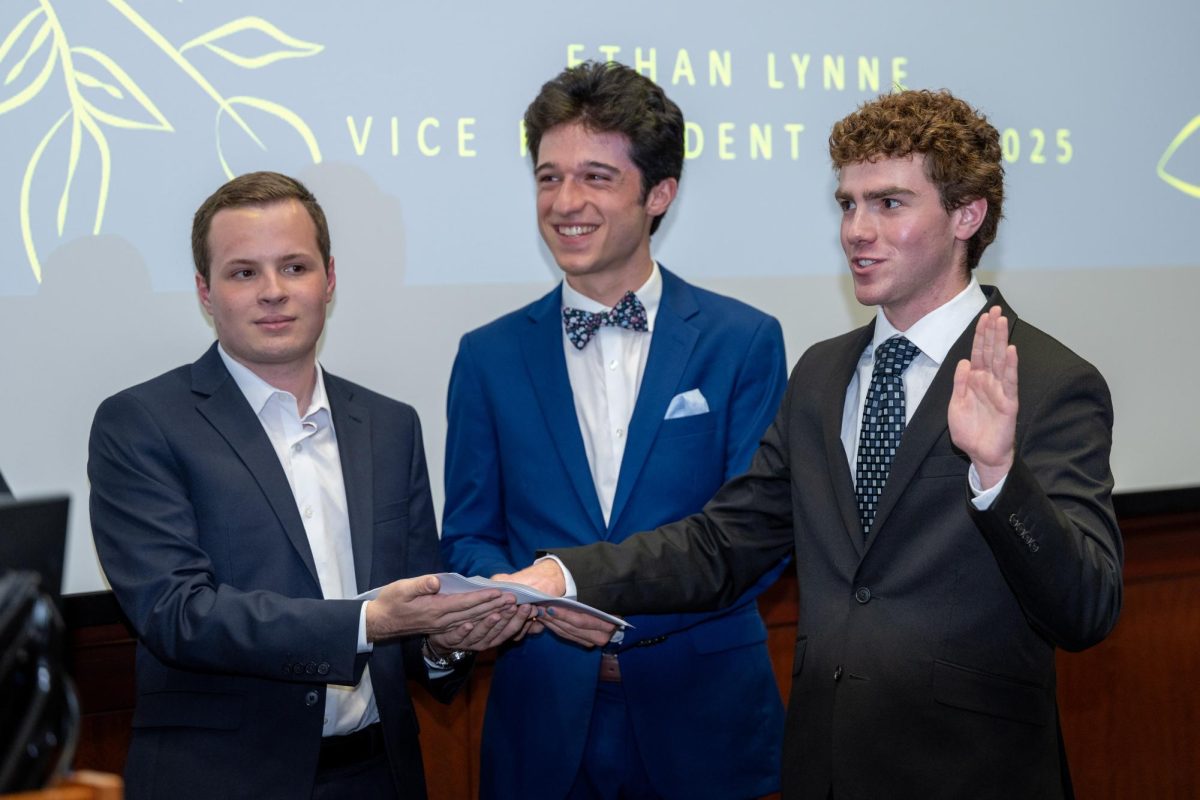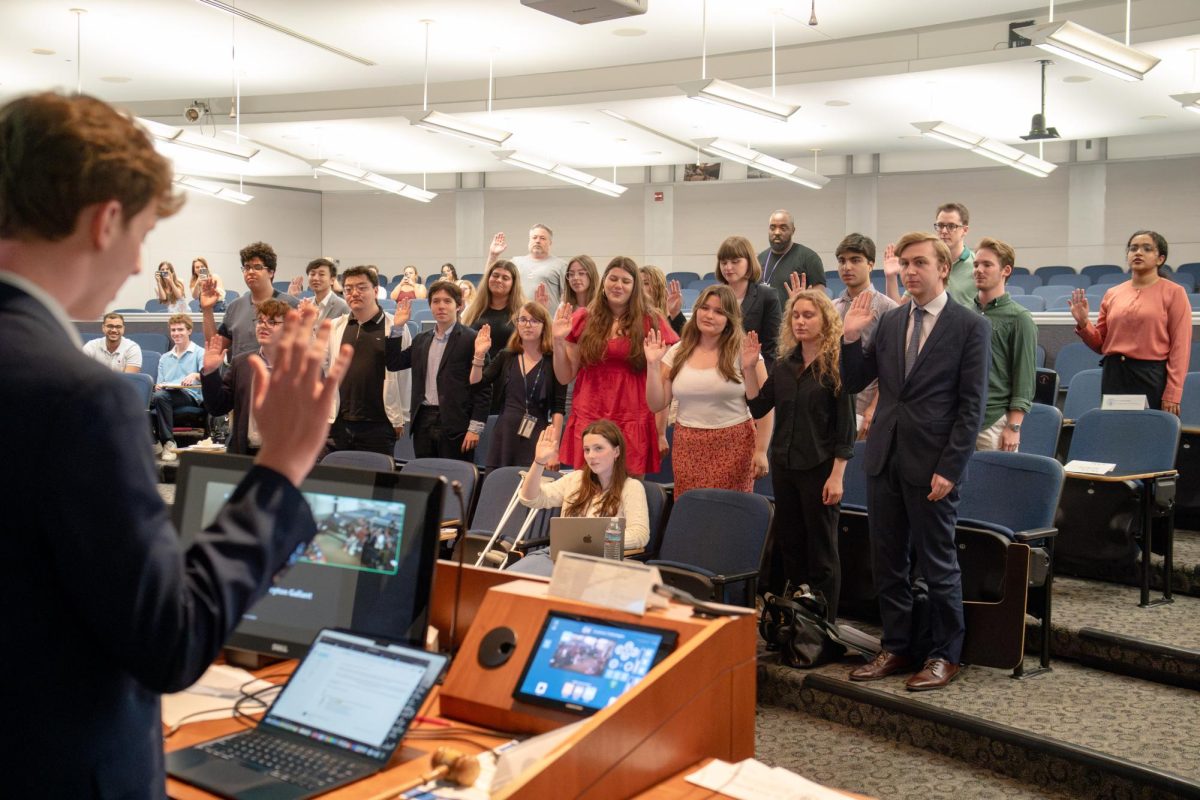A Student Association senator announced her bid for SA vice president Monday, hoping to increase mental health resources in the Colonial Health Center and advocate for greater graduate student representation.
SA Sen. Sofia Packer, CCAS-U, is running on a platform to facilitate equity and inclusion initiatives across campus and increase representation for graduate students. She said she will continue ongoing advocate efforts to reduce graduate student tuition in light of the COVID-19 pandemic and work with senators and officials to create inclusivity training for students.
“We’re just disconnected,” Packer said. “We need to meet with people. We need to make ourselves more open. We shouldn’t be this big, secretive body that a lot of people view us as.”
Packer is required to gather at least 250 signatures during the candidate registration period from Feb. 24 to March 3 and be approved by the Joint Elections Commission to qualify as a candidate. The senate approved legislation in November that cut the number of required signatures in half for candidates to run this year.
Packer is the second candidate to join the race, after SA Sen. Kate Carpenter, U-at-Large and a Hatchet photographer.
Packer said she will prioritize pushing officials to diversify faculty hires if elected. She said she has been involved with efforts to request a “cluster hire” of 18 faculty members of color for the Columbian College of Arts and Sciences and will work with senators and administrators to expand this initiative across other schools.
“This is an effort that will have to be done school by school because each school has its own hiring practices separate from the others,” Packer said. “And realistically, much of that decision is made by department chairs and the deans of those schools and then just signed off by people more centralized in the administration.”
Packer said in her role as the founder and chair of the LGBTQ+ Caucus, she has been pushing officials to update GW’s housing policy for transgender students to be able to live with a roommate of their choice regardless of gender. She said if elected, she would also encourage deans and department chairs to use a student’s preferred name instead of their legal name.
Packer said she also wants to add mental health specialists to the Colonial Health Center who specialize in working with students in marginalized groups, like LGBTQ and religious groups and communities of color.
“I think a lot of students of marginalized communities would be able to get more out of it if they had someone who had a greater understanding of their specific set of issues,” she said.
She said she will also promote “inclusivity training” for students and faculty on providing recognition to respective sexualities, gender identities and pronoun use.
Packer said she will work with officials to create a plan to gradually increase the number of gender-neutral bathrooms across campus. She said she hopes to advocate for administrators to add “a few” gender-neutral bathrooms throughout campus over the span of a few years.
She said if elected, she will advocate for graduate students in areas like applying a tuition reduction during the virtual semesters, adding that she commends the work of the Graduate Senators Caucus that has pushed for a tuition reduction this academic year.
“This needs a more activist approach, where you start organizing students to really put broader public pressure on the University about this,” she said.
Officials announced in July that undergraduate students would receive a 10 percent tuition reduction for this academic year. Graduate students have pushed the University to do the same for them through a petition launched earlier this year and a statement from graduate senators.
Packer said she also wants the SA executive branch to facilitate more connecting opportunities, like hosting events, for the student body to meet directly with SA leaders.
“I’ve noticed that there’s a lot of talk of, ‘Oh, I’m doing this for constituents or I’ve gathered constituent input on this issue,’ but we never see a public process for how that’s done,” she said.
She added that she would expand on initiatives senators have used this year to speak with students, like first-year senator forums and graduate student caucus town halls, to gather student feedback.
“If the VP, especially is leading by example and getting that direct feedback from the student body, and then encouraging senators to do the same in a way that we’ve never really seen before, that’s going to be really important,” Packer said.








